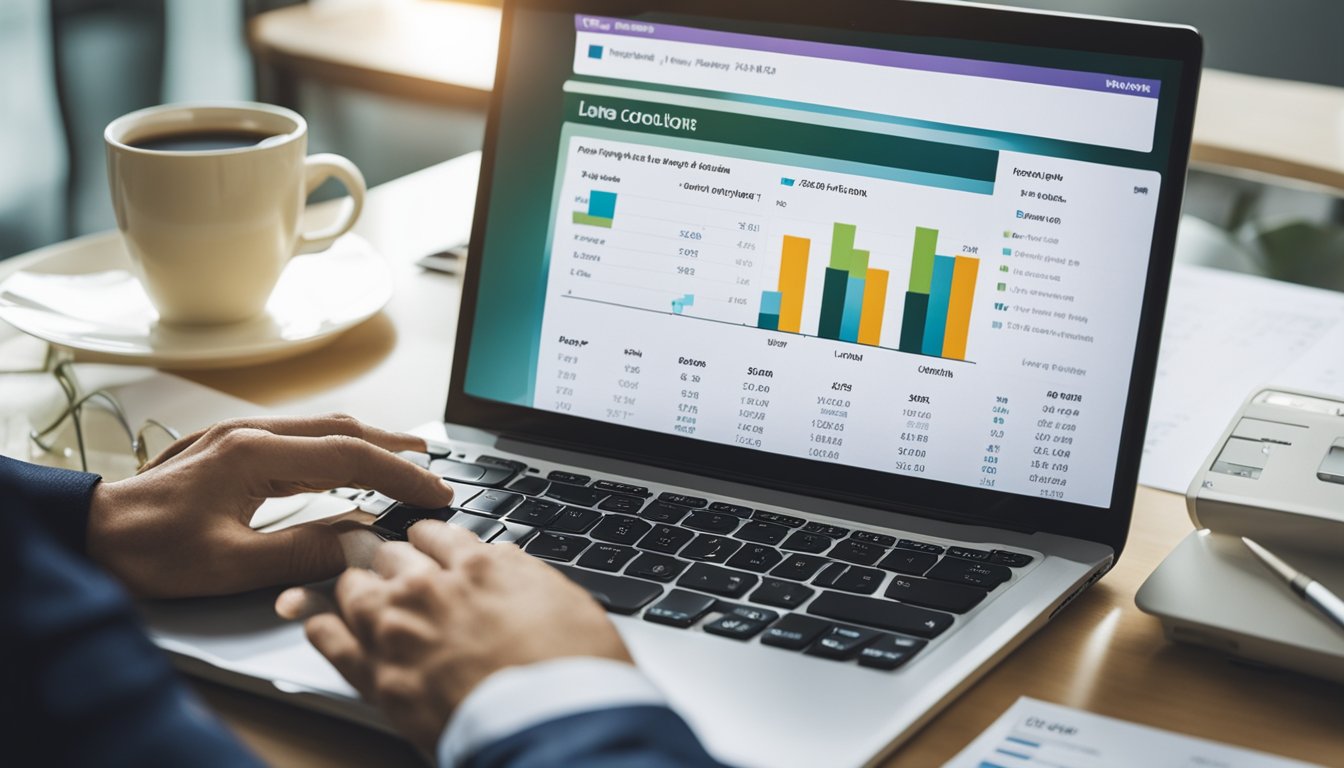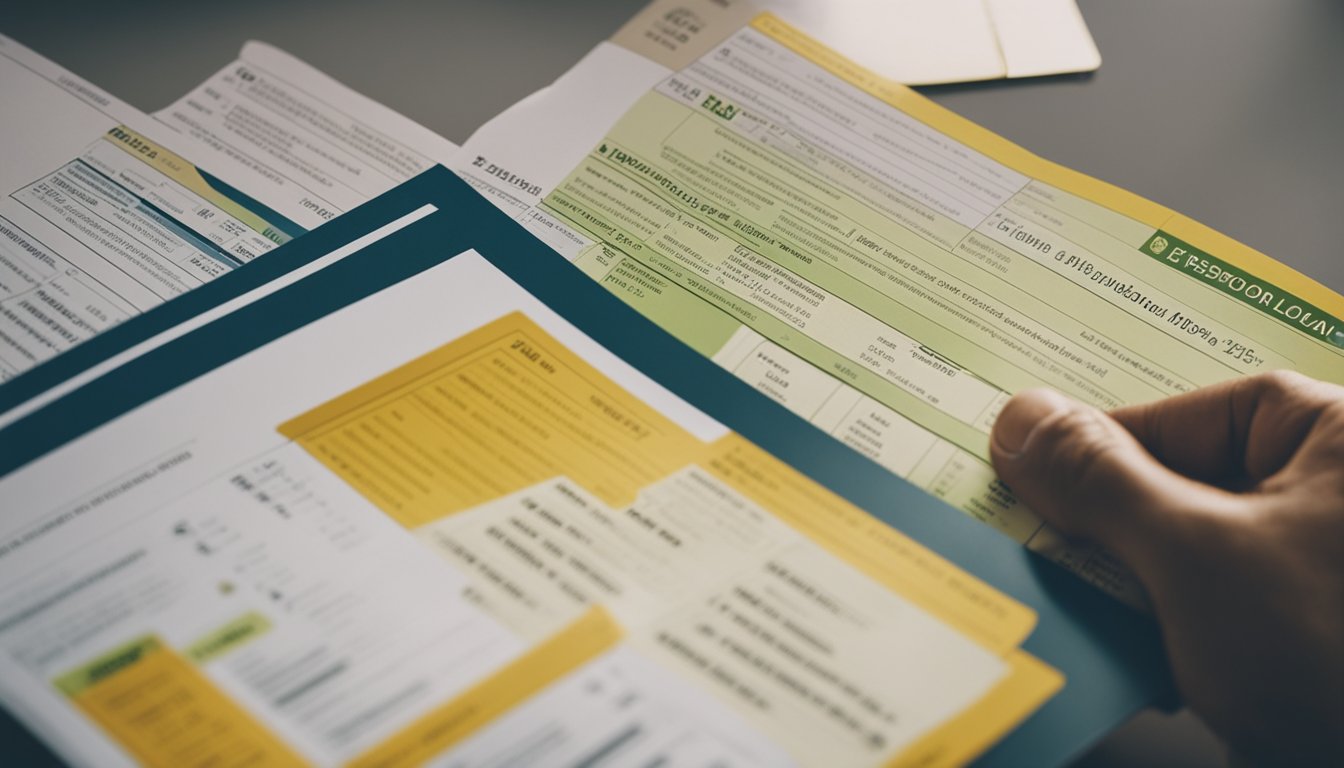Are you considering taking out a loan in Singapore but unsure whether a personal loan or a line of credit is the better option for you? Both financial products offer unique advantages and may suit different financial circumstances. Understanding the differences and benefits of each can help you make an informed decision that aligns with your financial goals and needs.

Personal loans provide a lump sum of money that is repaid over a fixed period, often with a fixed interest rate. On the other hand, a line of credit offers a revolving credit facility, allowing you to borrow up to a certain limit and only pay interest on the amount you use. Whether you are looking to finance a specific expense or require ongoing access to funds, the choice between a personal loan and a line of credit can significantly impact your financial situation. In this article, we will explore the features of both options to help you make the best decision for your financial needs in Singapore.
Key Takeaways
- Understand the differences between personal loans and lines of credit
- Consider the financial implications and costs associated with each option
- Gain practical advice to make an informed borrowing decision
Understanding Personal Loans

If you’re considering taking out a loan, you should know that personal loans are a popular option for Singaporeans. In this section, we’ll go over the basics of personal loans, including the types of loans available, interest rates and repayment terms, advantages of personal loans, and common uses for personal loans.
Types of Personal Loans
Personal loans come in two main types: secured and unsecured loans. Secured loans require collateral, such as your home or car, to secure the loan. Unsecured loans, on the other hand, do not require collateral, but may have higher interest rates.
Interest Rates and Repayment Terms
Personal loans typically have a fixed interest rate, which means that your monthly payment will remain the same throughout the loan term. Loan terms can vary, but they typically range from one to five years. Some lenders offer longer loan terms, but keep in mind that a longer loan term means you’ll pay more in interest over time.
Advantages of Personal Loans
One advantage of personal loans is that they give you a lump sum of money upfront, which can be useful for major expenses like home renovations or debt consolidation. Personal loans also typically have lower interest rates than credit cards, which can save you money in the long run.
Common Uses for Personal Loans
Personal loans can be used for a variety of financial needs, including major expenses like home renovations or debt consolidation. They can also be used for more predictable expenses like medical bills or car repairs. Keep in mind that personal loans are typically unsecured loans, which means that your credit score will be a factor in whether or not you’re approved for the loan.
When looking for a personal loan, it’s important to compare interest rates and loan terms from different lenders. Some popular lenders in Singapore include DBS Personal Loan and UOB Personal Loan. Keep in mind that lenders may charge a processing fee for personal loans, so be sure to factor that into your calculations.
Overall, personal loans can be a useful tool for managing your finances, but it’s important to understand the terms and conditions of the loan before you apply.
Exploring Lines of Credit

If you’re looking for a flexible financing option that can provide you with access to funds on an ongoing basis, a line of credit may be worth considering. Here are some things to keep in mind as you explore this type of financing.
How Lines of Credit Work
A line of credit is a type of open-ended loan that allows you to borrow up to a certain credit limit. Unlike a traditional loan, where you receive a lump sum of money upfront and then make monthly payments to repay it, a line of credit gives you ongoing access to funds that you can borrow as needed. As you repay your balance, your available credit replenishes, making it a revolving loan.
Variable Interest Rates and Flexibility
One of the benefits of a line of credit is that you may be able to take advantage of variable interest rates. This means that your interest rate may fluctuate over time, but it can also mean that you have the potential to save money on interest if rates go down.
Another advantage of a line of credit is that it can be a flexible financing option. You can use it to cover ongoing expenses, unexpected bills or emergencies, or even to take advantage of investment opportunities.
Benefits of Lines of Credit
There are several benefits to using a line of credit over other types of financing. For example, a line of credit can be a great option if you have a variable income or expenses. With a line of credit, you can borrow only what you need, when you need it, which can help you manage your cash flow more effectively.
Another advantage of a line of credit is that it can be a more affordable option than using a credit card. While credit cards can have high interest rates and fees, a line of credit may offer more favourable terms, especially if you have good creditworthiness.
Typical Uses for Lines of Credit
There are many different ways you can use a line of credit. Some common uses include covering unexpected expenses, paying for home renovations or repairs, financing a small business, or even taking a vacation. However, it’s important to remember that a line of credit is a loan, and you will need to make monthly payments to repay it, so it’s important to use it responsibly.
Some popular line of credit options in Singapore include DBS Cashline, HSBC Personal Line of Credit, and UOB CashPlus. However, it’s important to shop around and compare different options to find the best one for your needs.
In conclusion, a line of credit can be a flexible and affordable financing option that can provide you with access to funds when you need them. Just be sure to use it responsibly and make your monthly payments on time to avoid any negative impact on your credit line.
Comparing Personal Loans and Lines of Credit

When you need to borrow money, you may consider either a personal loan or a line of credit. Both options have their benefits and drawbacks, and which one is right for you depends on your financial situation and goals. In this section, we will compare personal loans and lines of credit in terms of interest rates, repayment schedules, impact on credit score and history, and choosing based on financial goals.
Interest Rates: Fixed Vs Variable
One of the main differences between personal loans and lines of credit is the type of interest rate. Personal loans typically have a fixed interest rate, which means that the rate stays the same throughout the repayment period. On the other hand, lines of credit usually have a variable interest rate, which means that the rate can change over time based on market conditions.
If you prefer the security of a fixed interest rate, a personal loan may be the better option for you. However, if you are comfortable with some uncertainty and want the potential to save money if interest rates go down, a line of credit may be a better choice.
Repayment Schedules: Lump Sum Vs Revolving
Another difference between personal loans and lines of credit is the repayment schedule. Personal loans are typically repaid in fixed monthly payments over a set period of time, while lines of credit have a revolving repayment schedule.
With a personal loan, you know exactly how much you need to pay each month and when the loan will be fully repaid. This can be helpful if you prefer a structured repayment plan. With a line of credit, you have more flexibility in terms of when and how much you repay each month. This can be helpful if you have irregular income or expenses.
Impact on Credit Score and History
Both personal loans and lines of credit can have an impact on your credit score and history. When you apply for either type of loan, the financial institution will check your credit report and score. This can temporarily lower your score, but making timely payments on the loan can help improve your score over time.
However, if you miss payments or default on the loan, this can have a negative impact on your credit score and history. It is important to carefully consider your ability to repay the loan before applying.
Choosing Based on Financial Goals
Ultimately, the choice between a personal loan and a line of credit depends on your financial goals. If you need a specific amount of money for a one-time expense, such as a home renovation or a wedding, a personal loan may be the better option. If you need ongoing access to funds for regular expenses or emergencies, a line of credit may be more suitable.
When choosing between a personal loan and a line of credit, consider factors such as interest rates, repayment schedules, impact on credit score and history, and your financial goals. By carefully weighing the pros and cons of each option, you can make an informed decision that best meets your needs.
Financial Considerations and Costs

When deciding between a personal loan and a line of credit, it is important to consider the financial implications of each option. Here are some factors to keep in mind:
Fees and Charges Associated with Borrowing
Both personal loans and lines of credit come with fees and charges. For personal loans, you typically pay a one-time processing fee, while for a line of credit, there is an ongoing annual fee that renews yearly. Some lenders may also charge an origination fee, a late payment fee, or an early repayment penalty. It is important to read the terms and conditions carefully and understand all the fees and charges associated with borrowing.
Assessing Your Repayment Capacity
When deciding between a personal loan and a line of credit, it is important to assess your repayment capacity. Consider your income, expenses, and other debts. Make sure you can afford the monthly payments and the loan term. If you are not sure, you can use a loan calculator to estimate your monthly payment and total cost.
The Effect of Interest Rates on Total Cost
The interest rate is one of the most important factors to consider when deciding between a personal loan and a line of credit. Personal loans typically have a fixed interest rate, while lines of credit have a variable interest rate. The effective interest rate, which takes into account all the fees and charges associated with borrowing, can vary depending on the lender and your creditworthiness. It is important to compare the interest rates and the effective interest rates of different lenders to get the best deal.
In Singapore, the interest rates for personal loans and lines of credit are regulated by the Monetary Authority of Singapore (MAS). The MAS requires lenders to disclose the effective interest rate and the total cost of borrowing in the loan agreement. This makes it easier for borrowers to compare different loan options and make an informed decision.
Overall, when deciding between a personal loan and a line of credit, it is important to consider your financial situation, your repayment capacity, and the total cost of borrowing. Make sure you compare different lenders and read the terms and conditions carefully before making a decision.
Practical Advice for Borrowers

If you are considering borrowing money in Singapore, you have two main options: a personal loan or a line of credit. Each has its own advantages and disadvantages, so it’s important to evaluate your financial needs and options carefully before making a decision.
Evaluating Your Financial Needs and Options
Before you decide whether to apply for a personal loan or a line of credit, it’s important to evaluate your financial situation and needs. Consider factors such as your credit score, cash flow, and stable income. If you have a good credit score and a stable income, you may be eligible for a lower interest rate on a personal loan. On the other hand, if you need more flexibility in your borrowing, a line of credit may be a better option.
When evaluating your options, consider the loan term and repayment period. Personal loans typically have a fixed repayment period, while lines of credit may have a more flexible repayment schedule. You should also consider the monthly repayment amount and whether it fits into your budget.
Strategies for Debt Consolidation
If you have multiple credit card debts, you may want to consider consolidating them into a personal loan or a line of credit. This can help you manage your debts more effectively and potentially save you money on interest payments.
When consolidating your debts, consider the interest rates and fees associated with each loan. Look for a loan with a lower interest rate and minimal fees to help you save money in the long run.
Tips for Managing Credit and Loans
Once you have taken out a personal loan or a line of credit, it’s important to manage your credit and loans effectively. This can help you avoid late fees and potentially improve your credit score.
One strategy is to set up automatic payments for your loans. This can help ensure that you make your payments on time and avoid late fees. You should also try to pay more than the minimum monthly repayment amount whenever possible, as this can help you pay off your debt faster and save money on interest payments.
In conclusion, whether you choose a personal loan or a line of credit in Singapore depends on your financial needs and situation. Evaluate your options carefully and consider strategies for debt consolidation and managing your credit and loans effectively.
Frequently Asked Questions

What perks does a line of credit offer compared to a traditional loan?
A line of credit offers more flexibility than a traditional loan as you can borrow money as and when you need it. This means you only pay interest on the amount you have borrowed, rather than the full amount of the loan. Additionally, you can borrow again once you have repaid the amount borrowed, without having to apply for a new loan.
Can obtaining a personal loan be more challenging than securing a line of credit?
Obtaining a personal loan can be more challenging than securing a line of credit, as personal loans are typically unsecured loans. This means that the lender is taking on more risk by lending you the money without any collateral. Therefore, lenders may require a higher credit score and more stringent eligibility criteria before approving a personal loan.
Why might a line of credit be a superior option over an instalment loan?
A line of credit may be a superior option over an instalment loan if you have an irregular income or need to borrow money intermittently. With a line of credit, you can borrow small amounts of money as and when you need it, and only pay interest on the amount you have borrowed. This can be more cost-effective than taking out a large instalment loan and paying interest on the full amount, even if you don’t need all the money at once.
What are the potential benefits of opting for a personal loan in Singapore?
Opting for a personal loan in Singapore can offer a fixed repayment schedule, making it easier to budget and plan your finances. Additionally, personal loans often have lower interest rates than credit cards, making them a good option for consolidating debt or making a large purchase.
How do early repayment fees work for DBS personal loans?
DBS personal loans typically come with early repayment fees, which vary depending on the loan amount and tenure. If you choose to repay your loan early, you may be charged a fee equivalent to a percentage of the outstanding loan amount. It’s important to read the terms and conditions carefully before taking out a personal loan to understand the fees and charges involved.
Where can I find the most competitive personal loan rates in Singapore?
You can compare personal loan rates from different lenders in Singapore on financial comparison websites. These websites allow you to compare interest rates, fees, and eligibility criteria from different lenders to find the most competitive personal loan for your needs. Some popular comparison websites in Singapore include GoBear, SingSaver, and MoneySmart.

